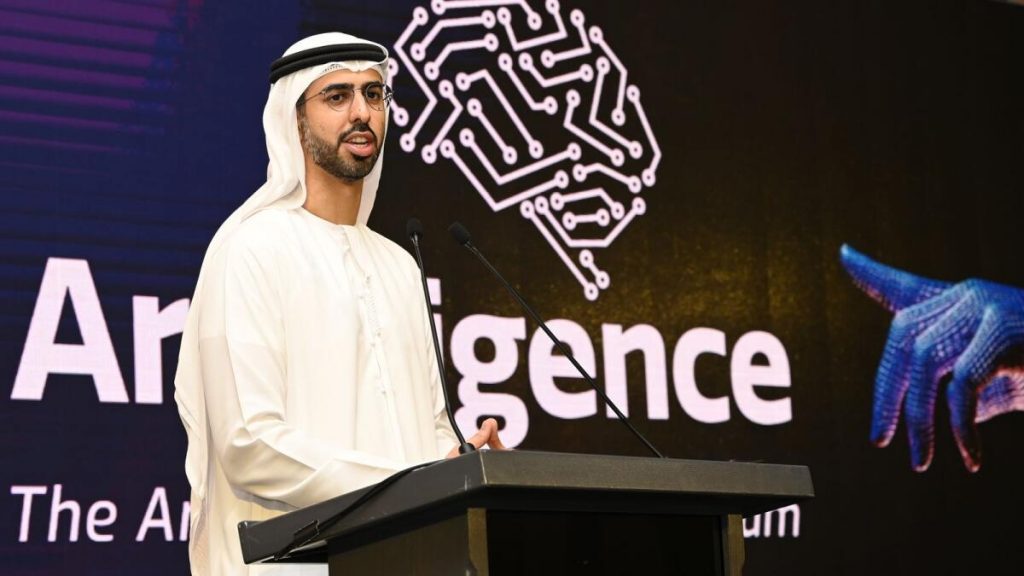Last week I turned 44 years old.
On the same day, Artificial Intelligence had its iPhone moment.
The AI industry declared its Top Dog. And it’s not Sam Altman’s OpenAI.
NVIDIA, a company most people hadn’t heard of, saw its market cap soar by 24% in after-hours trading to open at $940B.
Where others like Facebook’s META have been talking about AI’s profitability potential, NVIDIA proved it. And the market rewarded it in kind.
Its meteoric $184B Market Cap pop in a single day, exceeded the combined values of Walt Disney Co., Netflix, Nike, Boeing, UPS, Verizon, and Adobe.
(Salamu Alaikum. Goodnight. 👊🖐🎤)
On that auspicious 25th May, I found myself with NVIDIA, sharing my thoughts on a panel discussing ‘Entrepreneurship of the Future’ in #Dubai‘s stunning Museum of the Future. The event, organised by them in collaboration with the UAE’s Artificial Intelligence Office, was themed around Generative AI’s ability to unlock a new era of startup entrepreneurs.
Since then, NVIDIA’s value has continued to rise. Joining the world’s elite Trillion Dollar Club.
And investors have woken up to the fact that AI is not only a very big deal, but very big business.
Like the old saying goes, when there’s a Gold Rush, it pays best to be in the shovel and spade business.
NVIDIA does precisely that. By making the Graphics Processing Units (GPU’s) that power the voracious processing demands of Artificial Intelligence systems including OpenAI’s ChatGPT.
That overwrite.ai is a pioneering member of the #nvidiainception programme is extraordinary.
Where Dubai pioneered the transformation of the Middle East into a region the World can not afford to ignore, we pioneered the MENA region’s first proprietary Real Estate Themed Generative Artificial Intelligence.
Being part of NVIDIA’s network is validation of the incredible work the overwrite.ai team have put into developing the AI that creates the property adverts you browse through when searching for a home to buy or rent, online.



And as I took to the stage in front of a room packed full with hundreds of aspiring entrepreneurs, I was asked how a startup should harness the power of Artificial Intelligence for growth.
The answer I gave;
Be User-Friendly like Dubai.
Ayman Alashkar | Founder & CEO | overwrite.ai
Dubai is an undisputed Tier 1 Global City. In the 20 years since moving here, I’ve been fortunate to have been part of its story in becoming that.
Whatever your profession, Dubai has made living, working, and investing in it, user-friendly for us all.
Any entrepreneur that’s taking a good idea and using Generative AI to turn it into a startup business, must be obsessed with how user-friendly their solution can be.
Nobody’s got time to learn to use a complex tool.
Less friction equals greater adoption and user retention.

‘Entrepreneurship of the Future’ event in Dubai

That same user-friendliness, is baked into overwrite’s ethos.
Its why thousands of real estate agents use overwrite.ai to create their property listings.
And as overwrite.ai continues to grow, I also continue to learn from inspirational leaders in our field, such as the remarkable people at NVIDIA.
Thank you for your time.
overwrite.ai is a pioneering Themed Generative AI, creating engagement-oriented content for the real estate industry.
We create the marketing content that powers the real estate industries of the UAE, KSA, Egypt and Lebanon.
For informative news and views on the world of real estate, proptech and AI, follow overwrite on Instagram and LinkedIn, and keep up-to-date with our weekly NewsBites blog.
overwrite | real estate content creation, reimagined.


















